Bahria Town Shutdown in Pakistan became a major concern in early August 2025, when the country’s largest private real estate developer, Bahria Town, faced one of the most challenging moments in its history. Malik Riaz, the founder and chairman, publicly warned that the company was on the brink of shutting down its operations nationwide due to an aggressive government crackdown. His statement sent shockwaves through the property market, leaving investors, employees, and residents deeply concerned about the future of the multi-billion-rupee enterprise.
A Sudden Halt to Operations
Malik Riaz took to social media to announce that Bahria Town’s financial lifeline had been cut. According to him, bank accounts had been frozen, properties sealed, vehicles confiscated, and staff members arrested. This, he claimed, had crippled the company’s cash flow to the point where continuing operations was becoming impossible.
Bahria Town developments across major cities including Karachi, Lahore, and Islamabad experienced disruptions. Ongoing construction slowed or came to a complete standstill, essential maintenance work was abandoned, and customer services became limited. The ripple effects of this sudden halt were felt immediately, from small business owners inside Bahria Town projects to thousands of daily wage workers dependent on its construction sites.
The Roots of the Crackdown
The National Accountability Bureau (NAB) is primarily driving the government’s action against Bahria Town, accusing the company and its founder of corruption, illegal land acquisition, and financial misconduct. Authorities have frozen hundreds of immovable properties linked to Malik Riaz, his family members, and Bahria Town itself. These include prime plots in Islamabad, Rawalpindi, Lahore, and Karachi.
One of the central allegations is the illegal transfer of land from cooperative housing societies to Bahria Town in exchange for unlawful benefits. The NAB claims that such transfers violated legal procedures and deprived rightful owners of their property. In some cases, land was returned to its original owners after investigations confirmed irregularities.
In addition to the land disputes, Malik Riaz is also facing scrutiny in connection with high-profile corruption cases, including the controversial Al-Qadir Trust affair, which has political dimensions involving former government officials. The authorities allege that massive sums were siphoned off for personal and corporate gains, both locally and abroad.
Impact on Employees and Investors

Bahria Town is not just a real estate brand it is a vast economic ecosystem. Malik Riaz has claimed that the company employs over 50,000 people directly, with hundreds of thousands more indirectly relying on its projects. These range from construction workers, engineers, and architects to security staff, retail shop owners, and service providers within Bahria Town communities.
Investors, too, find themselves caught in a state of uncertainty. Many individuals have poured their life savings into residential and commercial properties within Bahria Town, confident in the brand’s reputation for delivering high-quality developments. With projects stalled and financial transactions frozen, these investments are now at risk. Malik Riaz warned that if the authorities do not resolve the situation soon, investors could lose private investments worth billions of rupees.
Malik Riaz’s Plea for Arbitration
In his public statement, Malik Riaz urged the government to opt for arbitration rather than confrontation. He proposed that an independent panel resolve all disputes so that the company could fulfill its financial obligations while safeguarding jobs and investor interests. He expressed willingness to comply with any settlement reached through this process, including payments to the government or affected parties.
Riaz stressed that his objective was not to evade accountability but to prevent the complete collapse of an enterprise that has played a significant role in Pakistan’s urban development. He emphasized that Bahria Town has provided modern housing, infrastructure, and community services to millions of Pakistanis and that shutting it down would have severe economic and social consequences.
Government’s Position
While Malik Riaz portrays the crackdown as overly aggressive, government officials argue that they must uphold accountability and the rule of law, regardless of the business’s scale. They assert that no individual or company can operate above the law and that they must protect public resources and property from illegal encroachment or exploitation.
The authorities also claim they are following legal due process and that they have given Bahria Town ample opportunity to defend itself in court. The government views the case as part of its broader effort to clean up the real estate sector, which has long struggled with allegations of fraud, unregulated expansion, and opaque financial dealings.
Economic and Social Implications
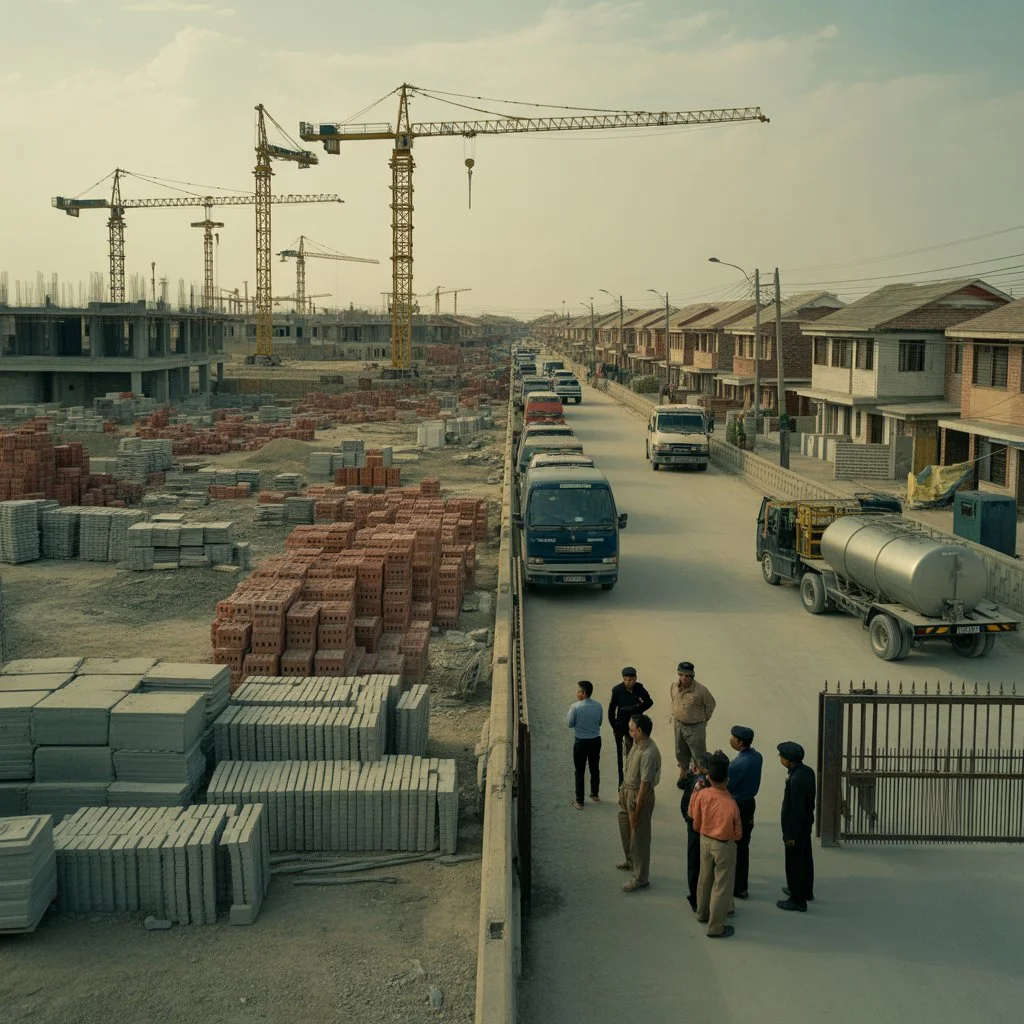
The potential shutdown of Bahria Town carries far-reaching consequences for Pakistan’s economy. The real estate and construction industries are major drivers of employment and investment, contributing significantly to GDP. If Bahria Town ceases operations, not only will thousands lose their jobs, but the demand for construction materials, home furnishings, and related services will also plummet.
From a social perspective, residents of Bahria Town developments could face disruptions in basic services such as water supply, security, and waste management. For many, these gated communities are not just investments but homes, and any prolonged uncertainty threatens their stability and quality of life. The crisis also sends a troubling signal to both domestic and foreign investors. Pakistan’s real estate sector, already under pressure from economic instability and fluctuating currency values, could see reduced investor confidence. Developers might abandon projects in the pipeline, and foreign investors may reconsider their plans to invest in housing schemes.
What Lies Ahead
The immediate future of Bahria Town depends on whether Malik Riaz and the government can find common ground. If the parties accept arbitration, they may find a pathway to settle disputes without dismantling the company’s entire infrastructure. This would allow Bahria Town to resume operations, pay its dues, and continue its projects while also addressing legal concerns. However, if the confrontation escalates, the consequences could be irreversible. The sale or auction of Bahria Town assets, as hinted in some legal proceedings, could lead to the fragmentation of its developments. In such a scenario, residents, investors, and employees would have to navigate a complex web of legal and financial uncertainties.
Conclusion
The unfolding Bahria Town saga is more than a corporate crisis; it reflects the delicate balance between enforcing accountability and safeguarding economic stability. Malik Riaz’s warning of an impending shutdown is not just a call for help but a reminder of how deeply intertwined large-scale businesses are with the livelihoods of ordinary citizens.
While the legal process must take its course, the need for a pragmatic resolution is undeniable. Whether through arbitration, negotiated settlements, or phased reforms. The priority should be to protect both the rule of law and the economic well-being of the thousands of families who depend on Bahria Town’s continued existence. Only time will tell whether this standoff becomes a turning point for transparency in Pakistan’s real estate sector or the end of one of its most ambitious urban development projects.
Want to know more? Check out Supreme Court Rejects Bahria Town Stay Plea Against NAB Property Auction
Like, share and comment: Facebook, Instagram, Youtube and Tiktok

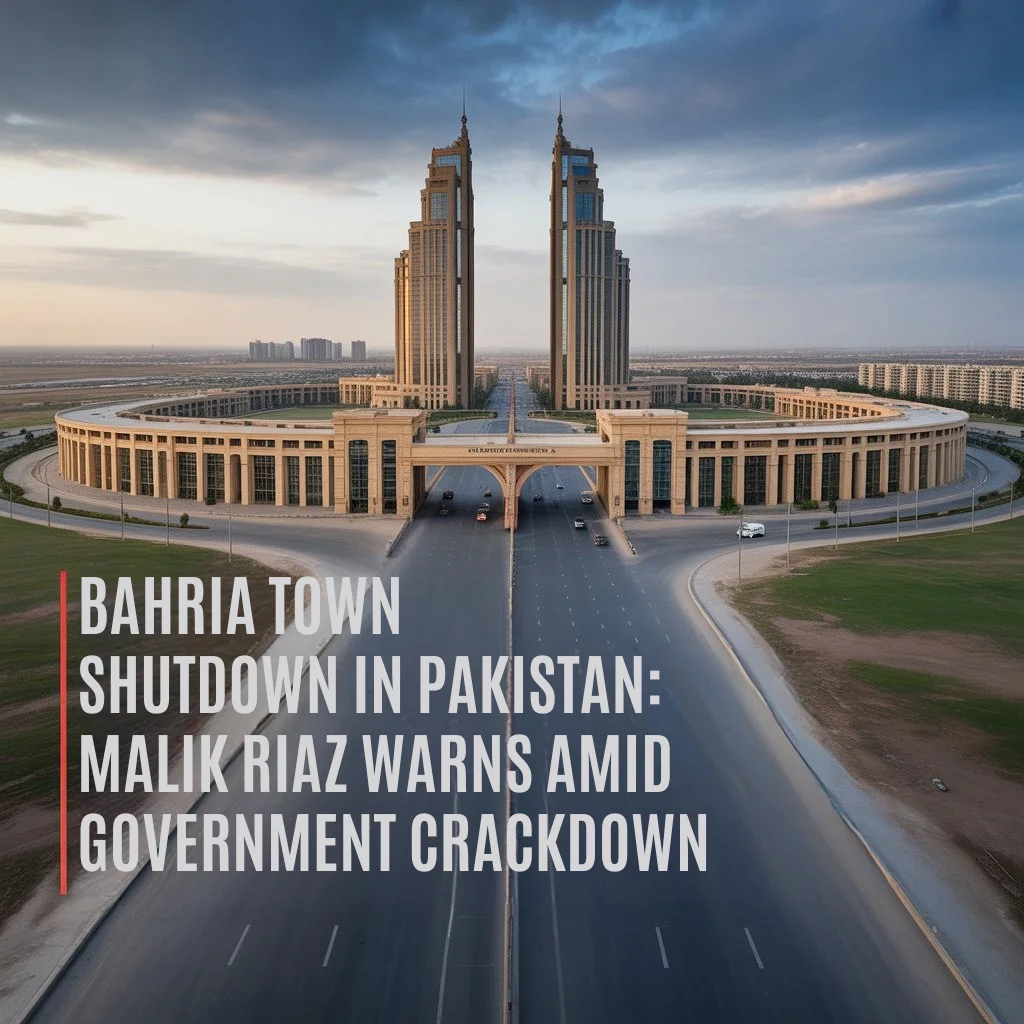
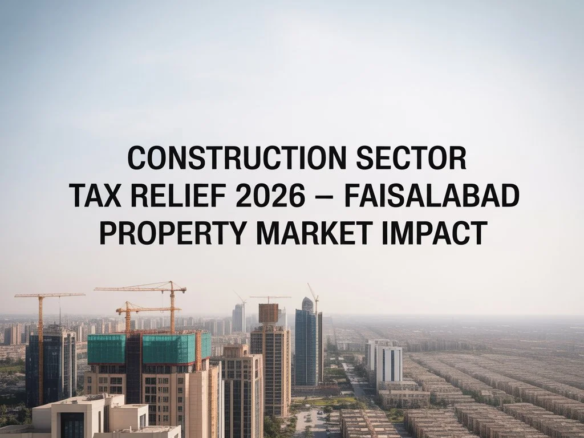
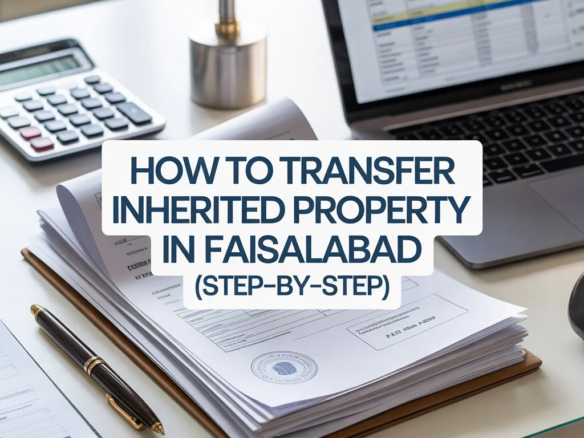
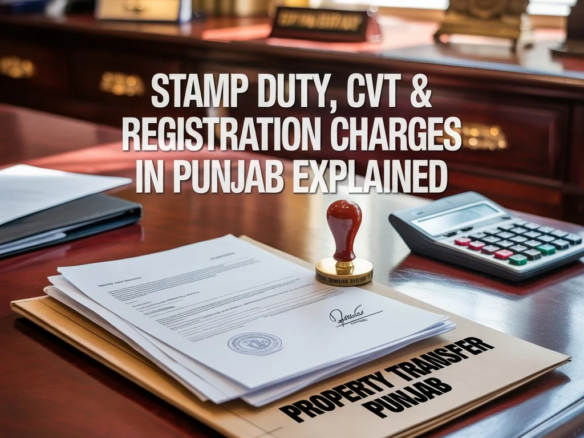
Join The Discussion